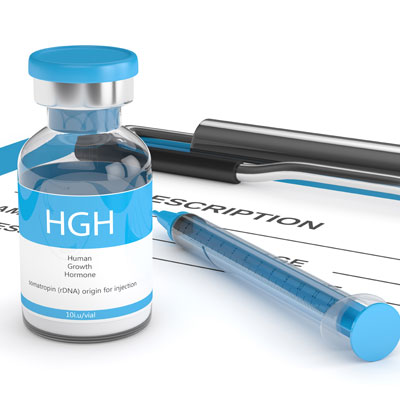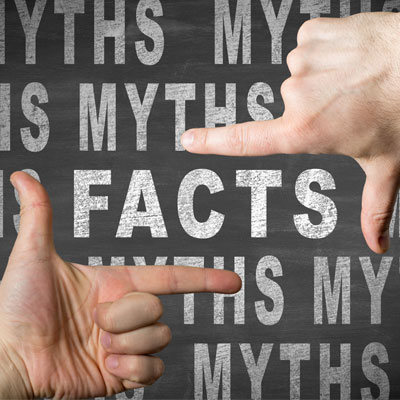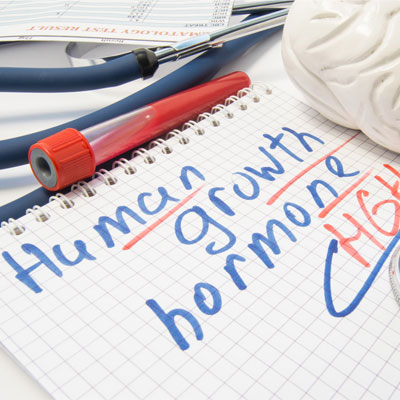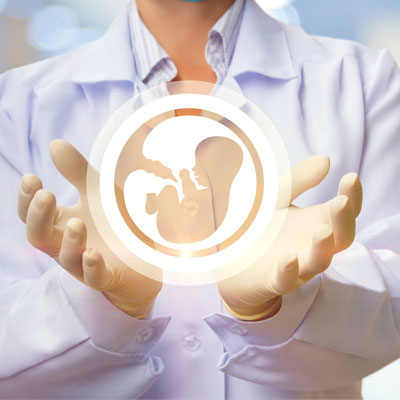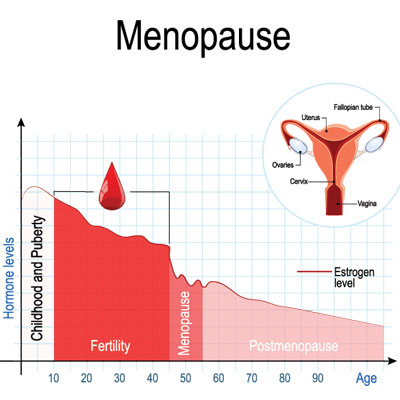Contents
- Depression and Emotional Symptoms of Growth Hormone Deficiency
- Did HGH Decline Cause My Depression?
- Will HGH cause depression if I start to gain weight or notice wrinkles and hair loss which are other symptoms of AGHD?
- Will HGH Therapy Cure My Depression?
- Are There Side Effects of Using HGH for Depression?
- How Do I Get HGH for Depression?
The medical community is well aware that a decline in growth hormone levels can lead to impairments in quality of life in adults. Changes in QoL are noted in emotional responses, body image, mood, health, libido, and mental functions. Depression is a common denominator for many men and women dealing with adult growth hormone deficiency (AGHD). In this report, we will focus on the use of HGH treatment for depression and its overall benefits for adults.
One extensive study of the topic of HGH, depression, daily functioning, and well-being was published in November 2014. The research encompassed seven focus groups, four telephone interviews, and AGHD patients over age 22 in three countries (United States, United Kingdom, Germany). Criteria included at least one course of HGH therapy as an adult.
Of the 39 patients interviewed, 34 were on current HGH treatment. The average age for the initiation of treatment with HGH was 43 years. Respondents in the study reported poor body and self-image, depression, mood swings, anxiety, irritability, resentment, anger, and tension in their relationships. Social interaction decline was common, as was fatigue and low energy. Other areas of concern for the participants included poor sleep, lack of focus, forgetfulness, low libido, and reduce physical activity.
It is easy to understand how these changes alone could lead to feelings of depression. What we also know is that the brain houses an abundant supply of growth hormone receptors. People with AGHD do not have enough growth hormone available to interact with and bind to the GH receptors. When the brain cells that support emotional well-being do not receive their stimuli, changes in mood are likely. That is why HGH helps depression both directly (by stimulating receptor cells) and indirectly (by improving all other symptoms of AGHD).
HGH impacts depression both directly and indirectly by addressing the cause and the additional symptoms that can affect emotional well-being.
Depression and Emotional Symptoms of Growth Hormone Deficiency
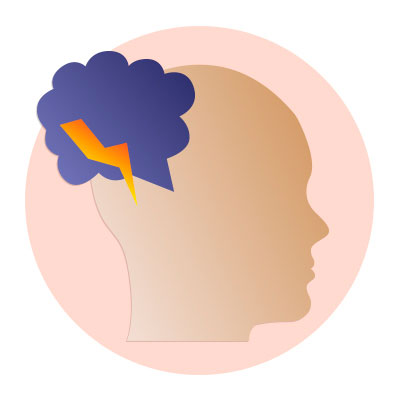
Human growth hormone exits the pituitary gland and enters the bloodstream, seeking out its unique receptor cells on tissues throughout the body. We find these receptors in the liver, the brain, muscles, bones, – essentially every part of the body. Receptors that do not receive enough HGH each day will respond in kind by reducing the functions they stimulate. For the brain’s receptors, it often means a decrease in endorphin production. Endorphins are the body’s feel-good neurotransmitters. Without enough endorphins in the bloodstream, depression is likely. HGH treatment for depression in adults with AGHD can improve the level of neurotransmitter endorphins.
HGH decline reduces brain endorphins which can lead to depression, sadness, hopelessness, loneliness, and other mood changes.
Did HGH Decline Cause My Depression?
It is not always easy to pinpoint the cause of depression. Can HGH cause depression directly? Yes, if growth hormone deficiency is reducing signals to the brain’s receptors, then depression is a likely outcome. The impact of HGH on the brain should never be overlooked. Learning, memory, focus, and emotional responses are all stimulated by human growth hormone.
Will HGH cause depression if I start to gain weight or notice wrinkles and hair loss which are other symptoms of AGHD?
Because there are so many ways in which HGH impacts the body, it is easy to understand how physiological changes can influence the emotional state. Weight gain and muscle loss, two key symptoms of AGHD, can transform a physically toned body into a flabby mess. Thinning hair, sagging skin, joint pains, and brittle nails can throw off one’s sense of self and often lead to depression. Frequent illness, low libido, and even blurry night vision can all impact daily life. When using HGH treatment for depression, we see benefits reach to all areas affected by AGHD.
Many adults with AGHD can trace their symptoms of depression back to their hormonal imbalance and its effects on the body and brain.
Will HGH Therapy Cure My Depression?
We know you want to be able to say HGH cured my depression. To find yourself waking up each morning well-rested, happy, and energized for the new day probably seems as though it is way off in the distance. When you are living with depression, life often looks very bleak. However, if growth hormone deficiency is the problem, then HGH therapy is the answer.
Be reversing the symptoms associated with AGHD, HGH treatment for depression can restore a sense of peacefulness and happiness to your life. Because HGH therapy reverses the many AGHD changes including strengthening immunity, brain functions, bones, and muscles, it promotes a better self-image. You will find that improvements in libido, memory, health, and appearance will uplift your mood. Of course, the direct impact on endorphin levels will significantly reduce feelings of depression.
HGH has a direct impact on feelings of depression and often restores happiness and emotional well-being for adults.
Are There Side Effects of Using HGH for Depression?
As with any medication, there is always the possibility of side effects. You will be pleased to know that it is extremely rare for adults with GHD to experience any adverse reactions from HGH therapy. Doctors specializing in hormone replacement therapy run diagnostic blood tests to determine the level of deficiency. That information, along with the results from a physical examination help ascertain how much HGH each person requires. In this way, you virtually eliminate the risk of significant HGH side effects. Depression begins to decline, giving way to feelings of well-being.
The most common side effects seen with HGH treatment for depression are irritation, redness, itching, or pain at the injection site. That is most often due to the individual’s inexperience in self-administering a shot. Any injection site reactions typically rectify themselves.
Other potential side effects of HGH are caused by too high a dosage of HGH in the body. These side effects include:
- Carpal tunnel syndrome
- Edema
- Acromegaly
- Nerve, muscle, joint pain
- Type 2 diabetes
- High cholesterol
Side effects of HGH for depression are extremely rare when treatment is diagnosed by a hormone specialist.
How Do I Get HGH for Depression?
HGH is a medication requiring a doctor’s prescription. You cannot buy real HGH over the counter. When you contact a hormone specialist, you will first have a consultation. We conduct these discussions over the phone for added convenience and privacy. Then, if it is a possibility that AGHD is causing your depression, we will arrange for your blood tests and physical examination at facilities near you. The process is quick and easy to accomplish.
If your doctor diagnoses growth hormone deficiency and prescribes HGH for depression, all medications and supplies will arrive at your door in a few days. It is that simple to turn the feelings of depression and hopelessness around.
For additional information about getting HGH treatment for depression, please contact our hormone clinic.
Please call us today for a free consultation.
- Lina Lasaite, PhD., Robertas Bunevicius, M.D., Ph.D., D.Sc., Danute Lasiene, Liudvikas Lasas, Prof.
- Tripti Mahajan, Anna Crown, Stuart Checkley, BCh., Anne Farmer, Stafford Lightman, Prof.
- C. V. McMillan, B.Sc., M.Sc., Ph.D., C. Bradley, MD., J. Gibney, M.D., MBA, ASAM, ASPS (rtd), FACS (rtd), M. L. Healy, D. L. Russell‐Jones, M.D., P. H. Sönksen.
- Timothy G.Dinan MD., PhD.
- Tracy Butler, MD., Patrick Harvey, DC., Lila Cardozo, Yuan-Shan Zhu, MD., Adam Mosa, MD., EmilyTanzi, Fahad Pervez, MD.
Psychological functioning after growth hormone therapy in adult growth hormone deficient patients: endocrine and body composition correlates
Atypical depression in growth hormone deficient adults, and the beneficial effects of growth hormone treatment on depression and quality of life
Psychological effects of withdrawal of growth hormone therapy from adults with growth hormone deficiency
Psychoneuroendocrinology of depression: Growth Hormone
Epilepsy, depression, and growth hormone


